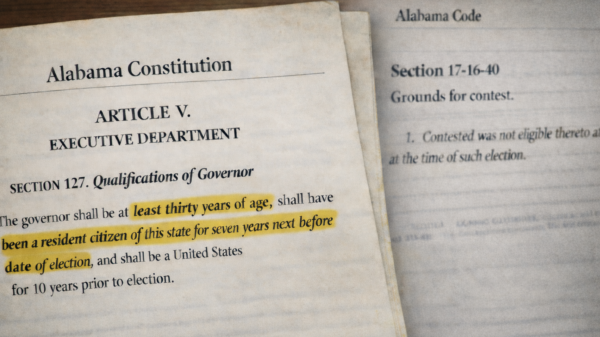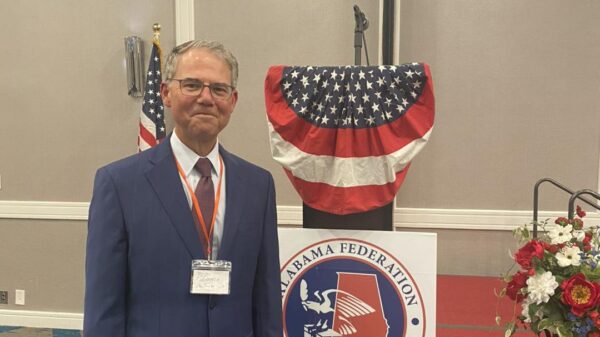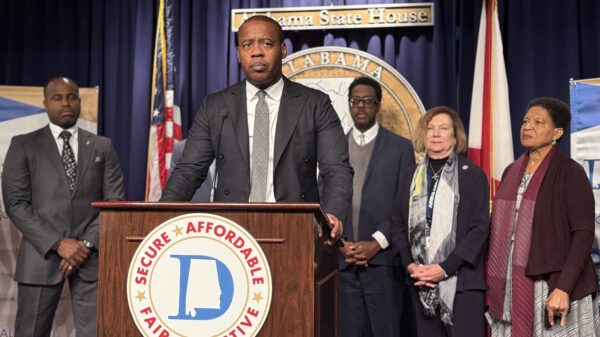By Brandon Moseley
Alabama Political Reporter
It took months of vigorous debate, the 2015 Regular Session, and two Special Sessions to final resolve the budget crisis in the State’s General Fund (SGF). Virtually of that $200 million shortfall can be blamed on out of control costs with the State’s long troubled Medicaid program. Now Alabama Governor Robert Bentley’s (R) handpicked Health Care Improvement Task Force has unanimously recommended that the state expand the troubled Medicaid system to make it responsible for over 200,000 more people.
On Monday, November 30, the Alabama Policy Institute released information claiming that expanding the exorbitantly expensive program would cost tax payers another $710 million a year. That would be on top of the $1.9 billion that the State already burns a year paying for its federally mandated share of the Medicaid program.
Governor Bentley reportedly is leaning towards announcing that the State will expand the already enormously expensive program even though it was Bentley himself who slammed shut the door on Medicaid expansion three years ago.
On Monday, November 12, 2012, Bentley said in a speech, “I also will not expand Medicaid under the current structure that exists because we simply cannot afford it.” Little has changed since that time other than most of the money the federal government promised early adoptees of the expansion has since expired.
The Patient Protection and Affordable Care Act of 2010 (PPACA – popularly known as Obamacare) ordered all 50 state governments to expand their state Medicaid plans to include millions more people. Alabama joined 25 other states, individuals, and the National Federation of Independent Businesses (NFIB) in suing the federal government to block the controversial act from ever going into effect. While the US Supreme Court rejected their core argument that individuals were protected by the ninth and tenth amendments to the Constitution from being compelled by their Government to purchase health insurance against their will; the Roberts Court however did uphold the states’ right not to be coerced into participating in the enormously expensive Medicaid expansion.
After the decision in the state’s favor, Governor Bentley announced that Alabama would not be participating in implementing any Obamacare exchange on the people of Alabama (a decision that reportedly has saved the State over $150 million to this point). The decision meant that the federal government had to use its own resources to set up costly insurance exchanges in Alabama and the other conservative states which refused to collaborate with the federal government in implementing the President’s policies in their jurisdictions.
The decision not to expand Medicaid in Alabama was good for the taxpaying public; but it was not good for Alabama hospitals. Hospitals accepted lower Medicare reimbursement rates as part of the negotiations on Obamacare in exchange for the government expanding the coverage for more low income Americans. Low income Americans who generally get the care they need at the emergency room and then make little or no payment for those services.
Alabama hospitals were thus hit with the double blow of lower reimbursement from their Medicare patients and no relief from an expanded Medicaid program to cut their portfolios of uninsured patients.
Hardest hit though were lower income Alabamians. Obamacare requires that individuals purchase health insurance; but purchasing a health insurance policy for an individual can be expensive. Medicaid expansion would have given health benefits to most Alabamians making less than $30,000. But Bentley exercised the right to refuse the expansion. Now instead of getting free government benefits poor working age adults have to buy their own insurance or get hit by PPACA fines; but individuals making less than $13,000 a year are unable to buy coverage on the exchange because under Obamacare they were supposed to be covered by Medicaid so aren’t technically eligible for the Obamacare subsidies.
Because Obamacare mandates are crippling on businesses, most new jobs since passage have been for part time jobs so that employers don’t have to provide coverage. This means that mean families have part time jobs; but are too poor to qualify for Obamacare; but can’t get Medicaid in Alabama because it was not expanded. Poor children, poor pregnant women, the disabled, and poor seniors were already covered under the current costly Alabama Medicaid Program so were not affected any by the decision on Medicaid.
The Federal government had agreed to pay most of the cost of the expansion for the first three years; but the State missed out on that money by not expanding the Medicaid program three years ago. Most sources are saying that the State will need to find another $150 to $200 million a year in income just to level fund the troubled SGF now. Tack on another $710 million on to that and legislators are facing a shortfall of up to $900 million a year.
Some pro-Medicaid expansion writers and college professors have argued that more dollars in the State’s healthcare means higher tax collections through increased economic activity; but under Alabama law all of the theoretical increased income tax collection are earmarked by the state Constitution for the Education Trust Fund, as is most of the sales taxes so even if there is a multiplier effect it won’t help the SGF any, and Medicaid is the costliest program in the SGF already. A lottery to fund Medicaid expansion has been proposed by some; but most lottery estimates are in the $200 to $250 million range…..not nearly enough to generate the $900 million the State would need to accept President Obama’s offer. “It would likely take a number of additional tax increases, a lottery and a vast expansion in casino gambling to accomplish that feat.” but Republicans (including Gov. Bentley) were elected in 2010 and 2014 promising to limit big government and fight Obamacare……not to embrace it.
While Bentley (age 72) will likely never face another election, most legislators will have to explain to their voters why expanding the size of State government was more important that cutting their taxes.














































